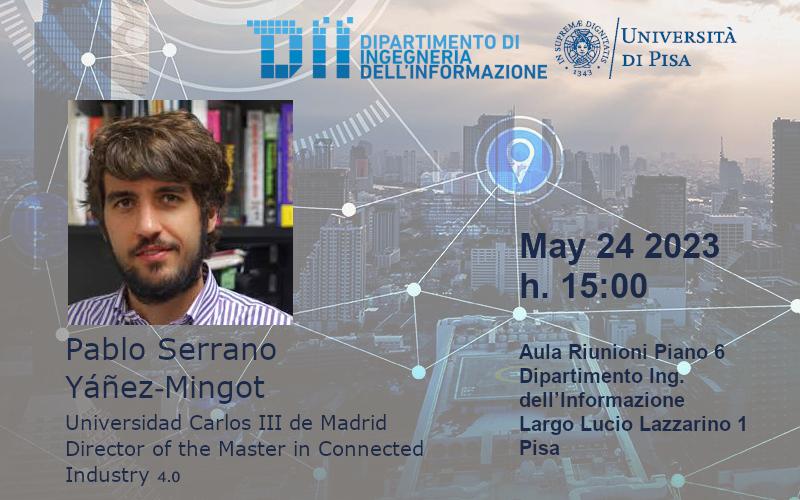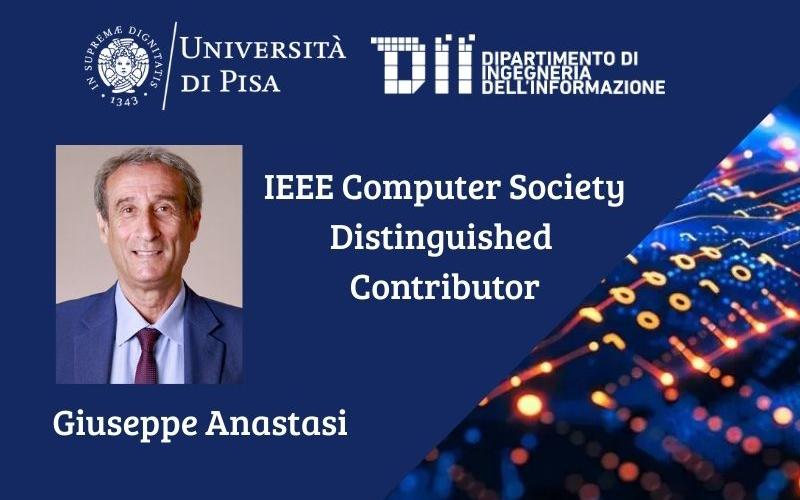La nomina a Distinguished Contributor (DC) premia i membri e gli affiliati della Computer Society che hanno apportato contributi tecnici significativi e continuativi alla IEEE Computer Society, alla...
Leggi tuttoCloudifying the mobile network stack: benefits and challenges

Pablo Serrano Yáñez-Mingot
Associate Professor at Universidad Carlos III de Madrid
Director of the Master in Connected Industry 4.0
Aula Riunioni Piano 6 - Dipartimento Ing. Dell’Informazione – Largo Lucio Lazzarino 1
Abstract
We are observing the softwarization of communication networks, where network functions are translated from monolithic pieces of equipment to programs running over a shared pool of computational, storage, and communication resources. This softwarization improves flexibility, e.g., the ability to instantiate more servers to cope with increasing traffic demand, and further motivates running the complete mobile networking stack in the cloud. However, due to the computing fluctuations inherent to wireless dynamics and resource contention in shared computing infrastructure, the price to migrate from dedicated to shared platforms may be too high. In this presentation, I will quantify some of the benefits of bringing this flexibility into the mobile network stack, exemplified by the "network slicing" concept, and discuss some of the challenges ahead, illustrating a partial re-design of the mobile stack to introduce cloud awareness.
Bio
Pablo Serrano is an Associate Professor at the Department of Telematic Engineering of Universidad Carlos III de Madrid. He has over 100 peer-reviewed papers in international journal and conferences and has served on the TPC of many of them. He currently serves as Associate Editor of the IEEE Open Journal of the Communications Society. He has held visiting positions at Univ. Massachusetts Amherst, Univ. of Edinburgh, Trinity College Dublin, Univ. of Rome Tor Vergata, and Telefónica R+D Barcelona. He has participated in many research projects (national and European), acting as Principal Investigator of the flagship Hexa-X project, the H2020 Flex5Gware project, and the regional Tigre5-CM project. His research interests lie in the analysis of wireless networks and the design of network protocols and systems. He is currently Deputy Director of Teaching Affairs at the Department of Telematic Engineering and Director of the Master in Connected Industry 4.0.



